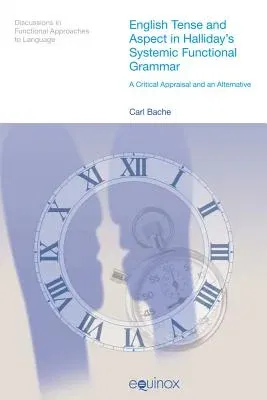Carl Bache
(Author)English Tense and Aspect in Halliday's Systemic Functional Grammar: A Critical Appraisal and an AlternativePaperback, 9 July 2008

Qty
1
Turbo
Ships in 2 - 3 days
In Stock
Free Delivery
Cash on Delivery
15 Days
Free Returns
Secure Checkout

Part of Series
Discussions in Functional Approaches to Language
Print Length
238 pages
Language
English
Publisher
Equinox Publishing (UK)
Date Published
9 Jul 2008
ISBN-10
1845533542
ISBN-13
9781845533540
Description
Product Details
Author:
Book Format:
Paperback
Country of Origin:
GB
Date Published:
9 July 2008
Dimensions:
23.11 x
15.49 x
1.52 cm
ISBN-10:
1845533542
ISBN-13:
9781845533540
Language:
English
Location:
Sheffield
Pages:
238
Publisher:
Weight:
358.34 gm